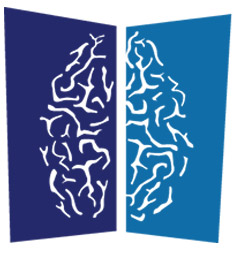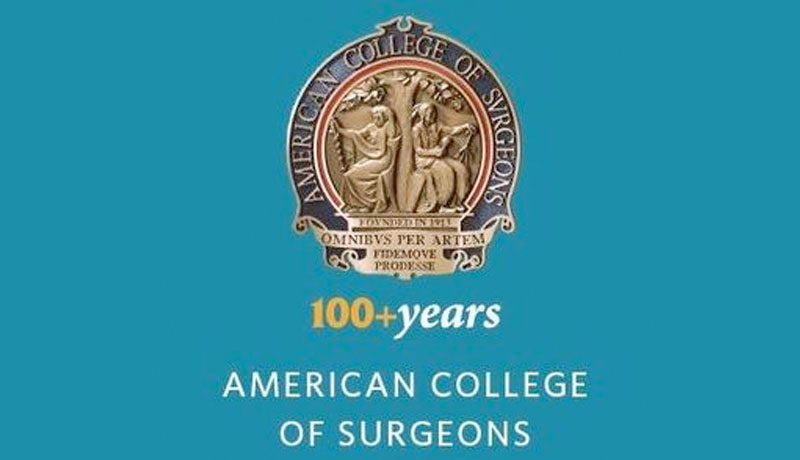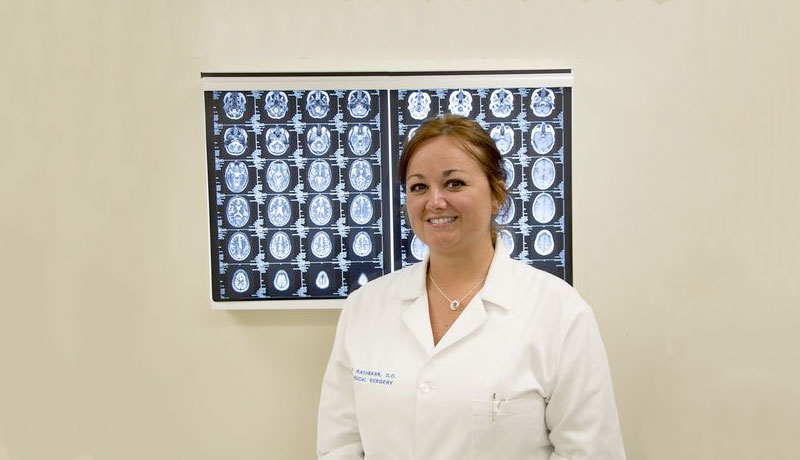 Dr. Mostafa El Khashab, MD, PhD, has added yet another set of letters to his already prestigious title: FACS. In addition, he is also distinguished for his certification in the use of both Gamma Knife and CyberKnife radiosurgery.
Dr. Mostafa El Khashab, MD, PhD, has added yet another set of letters to his already prestigious title: FACS. In addition, he is also distinguished for his certification in the use of both Gamma Knife and CyberKnife radiosurgery.
Members of the American College of Surgeons are referred to as “Fellows.” The letters FACS after a surgeon’s name mean that the surgeon’s education and training, professional qualifications, surgical competence, and ethical conduct have passed a rigorous evaluation, and have been found to be consistent with the high standards established and demanded by the College.
The American College of Surgeons (ACS) is a scientific and educational association of surgeons that was founded in 1913 to improve the quality of care for the surgical patient by setting high standards for surgical education and practice. The College currently has more than 80,000 members, including more than 6,000 Fellows in other countries, making it the largest organization of surgeons in the world.
Dr. El Kashab is also certified in the use of Gamma Knife® and CyberKnife® radiosurgery.
Stereotactic radiosurgery (SRS) is a form of radiation therapy that focuses high-power energy on a small area of the body. Stereotactic radiosurgery works in the same way as other forms of radiation treatment. The tumor is not removed, but radiation distorts the DNA of the tumor cells. As a result, these cells lose their ability to reproduce. This technology makes it possible for neurosurgeons to reach the deepest recesses of the brain and correct disorders not treatable with conventional surgery. It is also an option for other parts of the body.
Gamma Knife and CyberKnife radiosurgeries are considered by many to be the “gold standards” of stereotactic radiosurgery for brain lesions, providing results comparable to or better than conventional surgery in many cases, without the need for a surgical incision or extended recovery in the hospital.
The Gamma Knife (not a literal knife) generates a highly concentrated beam of radiation used to treat lesions in the brain. It is most commonly used on such conditions as acoustic neuromas, trigeminal neuralgia, brain tumors, arteriovenous malformation (AVM) and pituitary tumors.
In Gamma Knife radiosurgery, close to 200 tiny beams of radiation are focused on a tumor or other target using special equipment. A strong dose of radiation is delivered to the desired site, while having very little effect on the brain tissue it passes through.
The precision of Gamma Knife radiosurgery results in minimal damage to healthy tissues surrounding the target. In some cases, Gamma Knife radiosurgery may have a lower risk of side effects compared with other types of radiation therapy and can be a safer option than traditional brain surgery. Gamma Knife radiosurgery is usually a one-time treatment completed in a single day.
Gamma Knife and CyberKnife are two different types of radiosurgery, conducted slightly differently and for differing conditions or disorders.
According to Accuray, a radiation oncology company that markets CyberKnife, the CyberKnife Robotic Radiosurgery System is a non-invasive alternative to surgery for the treatment of both cancerous and non-cancerous tumors anywhere in the body, including the prostate, lung, brain, spine, liver, pancreas and kidney. The treatment – which delivers beams of high dose radiation to tumors with extreme accuracy – offers new hope to patients worldwide.
Though its name may conjure images of scalpels and surgery, the CyberKnife treatment involves no cutting. In fact, the CyberKnife System is the world’s first and only robotic radiosurgery system designed to treat tumors throughout the body non-invasively. It provides a pain-free, non-surgical option for patients who have inoperable or surgically complex tumors, or who may be looking for an alternative to surgery.
If you are interested in learning more about Gamma Knife and CyberKnife radiosurgery and think you may be a potential candidate, call 201-457-0044 to schedule an appointment.

ANA is a team of expert neurosurgeons and medical professionals, who combine their decades of knowledge to provide information, events, and articles on a range of neurological conditions.



